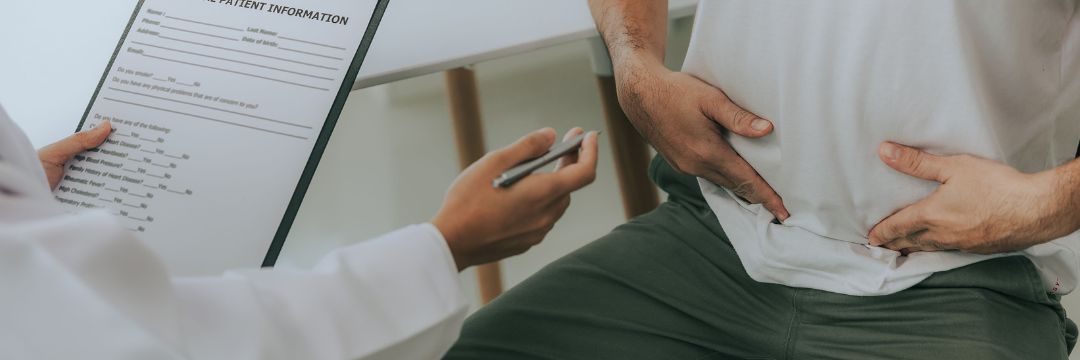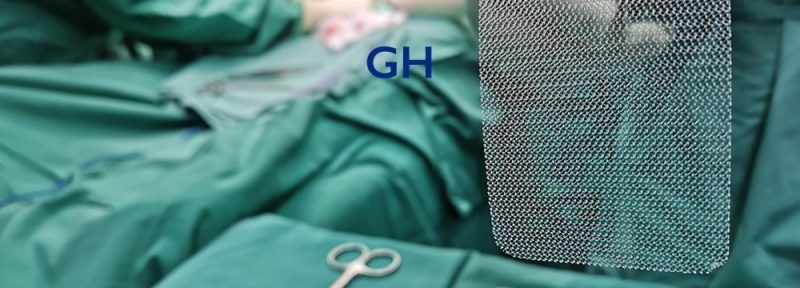Hernia
Hernias can be a painful and inconvenient condition that many experience at some point in their life. In fact, men have a 25% chance of developing an inguinal hernia at some point in their lives. A hernia occurs when the fascia abdominal wall weakens and fatty tissue or organs (usually the colon) bulges through. There are over one million hernia repairs performed every year in the United States, which brings to mind the question “Do all hernias need a surgical repair?”
Types of Hernias
There are many types of hernia, the most common being:
- Inguinal – when intestinal or fatty tissue protrudes through a weak area in abdominal wall or inguinal canal
- Incisional – a protrusion through a previous surgical incision site
- Femoral – a protrusion into the thigh canal where the femoral artery is located
- Umbilical – a protrusion into the area near the belly button
- Hiatal – a protrusion through the opening in your diaphragm where the esophagus intersects called the hiatus (although this is not a typical abdominal hernia and should be considered separately)
Hernias can occur during heavy lifting, pregnancy, constipation or diarrhea, or continuous coughing amongst other things that can cause increased intra-abdominal pressure.
Is Surgery ALWAYS Necessary?
The short answer is no. If a hernia is small, doesn’t cause lifestyle impediments and a patient does not have symptoms, surgery is not always needed. However, if a hernia is left unrepaired, it will eventually grow in size, and likely cause pain and discomfort. In the worst case, the bulge can get stuck and possibly cut off blood supply to that area of the organ (known as incarceration and strangulation respectively). This is an emergency situation that always requires surgery. Some, such as femoral hernias, should be repaired immediately, as they carry a higher risk of strangulation (up to 20%). If you or your doctor has discovered the presence of a hernia, it is always a good idea to consult a surgeon.
Scheduled hernia repair is a straightforward surgical procedure that can be done laparoscopically with or without a surgical robot. In a traditional laparoscopic procedure, the surgeon will make several small cuts in the area of the hernia and insert a laparoscope (camera) and special miniature tools to perform the repair. The surgical robot has been utilized effectively for hernia repairs as well, allowing for more complex repairs to be performed laparoscopically when they would have otherwise been performed in an open manner. Bilateral hernias can be repaired robotically more easily than with traditional laparoscopic tools.
Most patients leave the hospital the day of their surgery or otherwise make it home a day later.
On the flipside, emergency hernia repairs typically come with greater risk and a higher likelihood of chronic pain. As a result, the decision as to whether or not to have hernia surgery is something that should be discussed with your surgeon.
The Bottom Line
Hernias are an extremely common condition, and hernia repairs usually require a short recovery time. Surgery is not always necessary, but if you are a candidate, it is a good idea to decrease the risk of complications and lifestyle issues later on.
Dr. Higa is an experienced, board-certified general surgeon who is specialized in hernia repairs. If you would like to a medical professional about your options, book an appointment with us today.





